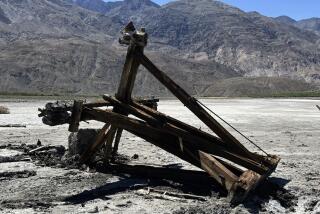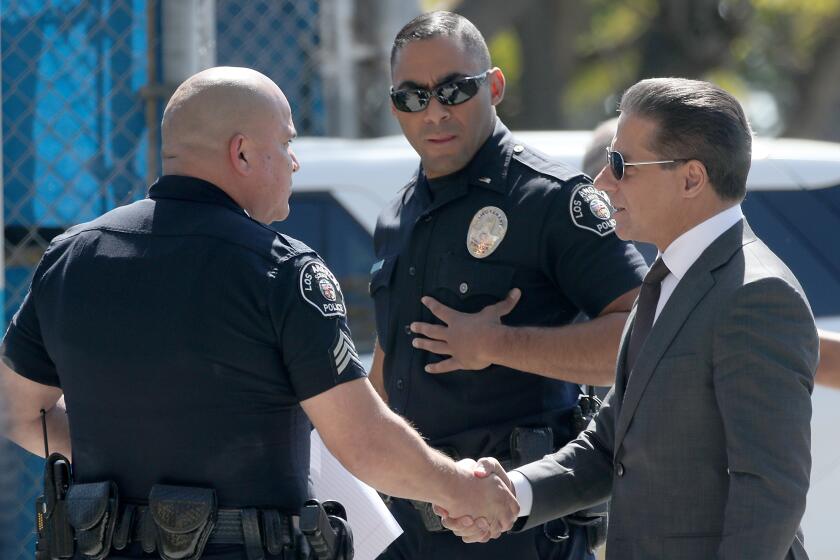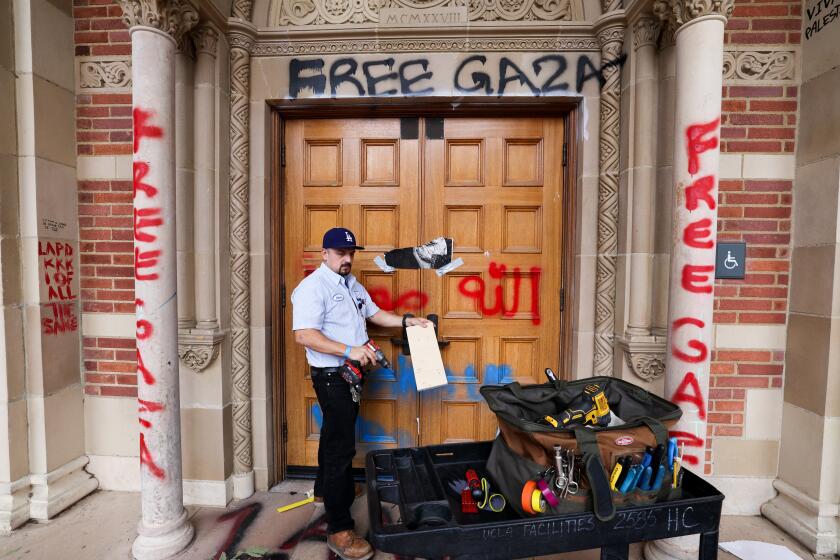President of Stanford Plans to Step Down
Stanford President Gerhard Casper, a thoughtful lawyer who restored stability and confidence to the prestigious institution after a research funding scandal, announced Tuesday that he will step down from the presidency next August so he can return to teaching.
Casper, who took over the top job seven years ago, focused extensively on strengthening undergraduate instruction, including an ambitious program to coax senior professors to teach freshman seminars by promising extra cash for their departments.
His reign of calm has boosted morale among faculty and increased the campus’ desirability among the nation’s best and brightest high school students. His tenure also has been marked by large increases in Stanford’s endowment. He raised more than $100 million for graduate student research and pursued the preservation and expansion of campus buildings.
He was criticized, however, by some faculty members who complained that he was autocratic and highhanded. In the last year, he has gotten embroiled in the controversial merger of the Stanford and UC San Francisco hospitals. The merger was supposed to save money but has hemorrhaged red ink.
Now, after seven years in the job, Casper said that he thinks it soon will be time to make way for “fresh perspectives” in the president’s office and that he longs to return to a more scholarly life.
During his Stanford presidency and for more than a dozen years as University of Chicago provost and law school dean, Casper said he has tried to maintain an “intellectual presence” by continuing to write and publish articles.
Casper, a constitutional law scholar who keeps a well-worn copy of the U.S. Constitution in his jacket pocket, said he wants to give up the hurly-burly pace of university president, which he has often likened to “trying to herd cats.”
“I need a season of refreshment and renewal,” Casper told academic deans and professors Tuesday. “And it is high time for me to spend more time with family and friends.”
He said he plans to take a sabbatical and then return to the Palo Alto campus to teach seminars and other courses to undergraduates.
Casper’s effort to persuade other senior faculty members to teach such courses has been largely successful, allowing new students to come into contact--in small groups--with the university’s most accomplished and brilliant professors. At many big research universities, freshmen and sophomores spend most of their time in large lecture halls or with graduate students acting as teaching assistants.
“Given the emphasis I have placed on the creation of Stanford Introductory Studies, I shall, in the years remaining, devote most of my efforts to our undergraduates,” he told his campus colleagues.
In an interview 18 months ago, Casper said he found more personal enjoyment in leading a seminar with sophomores than he ever has helping the university raise money or settling turf battles among feuding faculty.
“It was the best teaching experience that I ever had,” he said.
Born in Hamburg, Germany, Casper was educated at the University of Hamburg, the University of Freiburg and Yale before landing a job at UC Berkeley and then at the University of Chicago, where he worked his way up over 26 years to provost, the No. 2 position at the university.
He was selected in 1992 to succeed Donald Kennedy as Stanford’s president after Kennedy resigned amid allegations that Stanford misspent millions of federal research dollars. The university also was the target of conservative critics for changing Western civilization classes to include more discussion of minority cultures and authors and was embarrassed by a highly publicized sexual harassment case.
“Gerhard will be remembered as one of Stanford University’s great presidents,” said University of California President Richard C. Atkinson, a former Stanford professor.
Robert Bass, chairman of the university’s board of trustees, said the school has been “privileged to have the best management team in higher education.” Casper’s resignation follows the departure of Provost Condoleezza Rice, a young and promising scholar who was a member of George Bush’s national security staff.
The trustees will appoint a committee to conduct a nationwide search for a new president.
More to Read
Start your day right
Sign up for Essential California for news, features and recommendations from the L.A. Times and beyond in your inbox six days a week.
You may occasionally receive promotional content from the Los Angeles Times.






